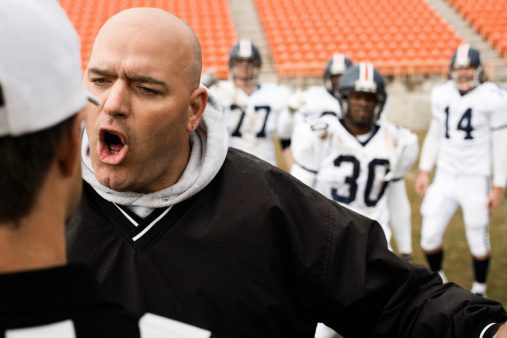College coaches have gotten a bad reputation due to a few loud and borderline abusive coaches. These coaches use intimidation, embarrassment and threatening techniques to try to bring out the best in their players. With the rise of social media, more players who recognize coaches that have gone too far have been speaking out. Alexander Wolff reports in an article on Sports Illustrated, after one player tweeted about a college coach’s misconduct, a former player weighed in with a tweet of his own: “We had the exact same issues. Thanks for standing up!” Unfortunately, there is a long history of college coaches orchestrating various suffering. A glimmer of hope, Wolff says, “Abuse may be occurring no more often than before, but it’s simply coming to light because more players, empowered by digital tools, are standing up for themselves.” Coaches have the opportunity to make lasting impressions on their athletes, teach teams life lessons and often become one of the most important people in athletes’ lives. It is important to remember not to abuse power in a leadership position. Negative coaching can create mental, physical or emotional damage. Players have the ability to stand up now more than ever to shed light into bad practices within sports organizations in the hopes to create a better playing field for future generations. The Sports Illustrated article is worth a read. We also recommend Sports Illustrated’s latest “Brain on Sports” podcast entitled, Abusive coaching in sports: Positive approach is more effective. Here’s a quick excerpt from Wolff’s story:
“But the best way to get the best out of athletes is to create a positive culture in which they’re respected and believe in their value, and that the coach believes in them. The idea of the all-knowing coach who has lots of power and uses it in the way we now call bullying—that was kind of the norm. But all the research shows that it’s not the way to get the best out of people.” Some of the most striking evidence comes from Dr. Barbara Fredrickson, the author of Positivity and a social psychologist who runs the Positive Emotions and Psychophysiology (PEP) Lab at North Carolina. “Negative emotions grab people’s attention more,” says Fredrickson, who attributes this to evolutionary reasons, because survival in the prehistoric environment often depended on sudden alerts. “So there’s a perception that the best way to get what you want out of employees or players is by negativity or threats, or being stressful or intense. But in terms of bonding, loyalty, commitment to a team or a group and personal development over time, negativity doesn’t work as well as positivity.”
At CoachUp, we are proud of the athletes who stand up for themselves and promote positive coaching tactics within our company. [maxbutton id=”17″]
How useful was this post?
Click on a star to rate it!
Average rating 5 / 5. Vote count: 1
No votes so far! Be the first to rate this post.



